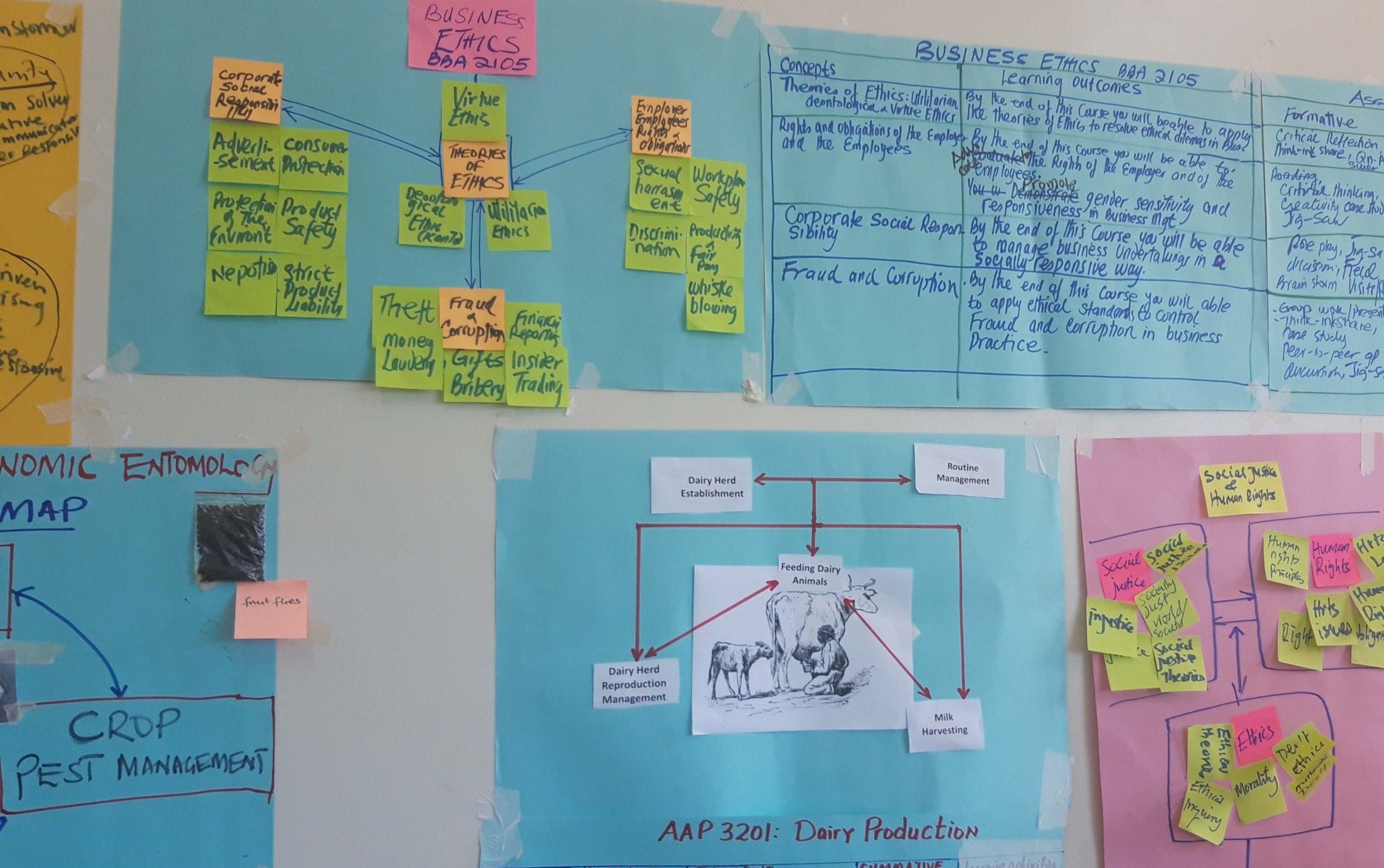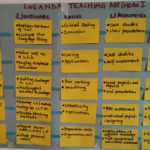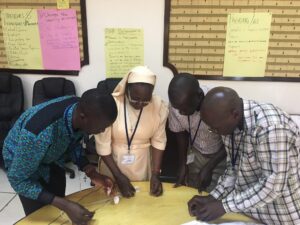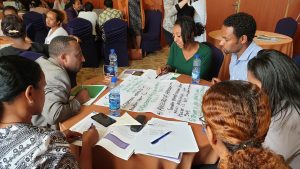
Employer engagement and its role in higher-education course redesign
Strengthening links between universities, employers and the wider community is important for ensuring that graduates leave university with the skills they need for employment and positive participation in society. David Monk of Gulu University in Uganda explains the role of Joint Advisory Groups in the TESCEA partnership.
The Transforming Employability for Social Change in East Africa (TESCEA) partnership is working to help higher-education students in Tanzania and Uganda become better equipped with the critical-thinking and problem-solving skills that they will need when they graduate.
A key component of this work is building links between universities and wider stakeholders and so each of the four universities in the partnership has established a Joint Advisory Group, or ‘JAG’. JAG members are important stakeholders from the community that might hire students or work with students. In Gulu, the focus of our course redesign pilots are in medicine, agriculture and business so our JAG is composed of professionals from these three fields. JAG members have been chosen who are successful in their work but also interested in leading innovation for the development of their community. In Gulu we also have some political representation, including a local city councillor and a representative from the Ministry of Education.
I have written previously about some of the ways we are fostering engagement between JAG members and the university. The role of a JAG is to look at what we are doing in TESCEA in our university and give us some ideas of what skills employers want and how can we get there. JAG members are our window into the world of employment. They are not experts on how to teach so they do not focus so much on the pedagogy but they can talk about dealing with students because all of them work with students extensively. They can talk about how that process of working with students can be applied, some of the challenges that are there and how to overcome them.
They can also help us to see how we can we include learning from the community in the curriculum. They are interested in enhancing student adaptability, flexibility, self-initiative, critical thinking and those soft skills that are needed in the community and in the workplace. The JAG’s role therefore is to help integrate workplace experience and internships in the university programme and really make sure that the community’s voice is imprinted in the project, in the classroom and at the university.
We have recently completed our second round of curriculum redesign at our university and we were able to draw on expertise from JAG members who attended on the final day of the workshop. JAG members watched the course redesign participants give 90-second pitches to present their classes, themes and concepts, and what students should get out of the classes. Being able to join us for the last day enabled JAG members to ask questions and interact informally beyond the presentations over coffee and lunch. That was a really important component and goes deeper than is possible through simply sharing materials from the courses during JAG meetings.
Next steps with the JAG
Moving forward, we want to connect specific JAG members to specific courses. For example, we want to connect JAG members in the agricultural sector with the lecturers that are redesigning courses in agriculture.
In Gulu we are lucky to have a hands-on and deeply invested JAG team. JAG members want to see the outlines of the courses that are being redesigned and the methods used in teaching in order to provide support in their role as advisors. Here the online Learning Designer platform that we use in course redesign is proving useful because it enables JAG members to have access to the course plans.
In order to help facilitate the experiential learning component of the learning, the JAG members are going to help facilitate short internships for the lecturers that are participating the course redesign. Through reflection on this experience, the lecturers can integrate the experiential component in their classroom and create rich learning environments. They can facilitate getting that knowledge back into the class, whether it be at the course level or programme level, perhaps through evening social events where employers and students come together.
Experiential and practical learning is an essential component of the university experience. In order for universities to anticipate the future needs of the students and the community it is important for the community to have input in the learning process. JAG members facilitate relationships between the university and the community and are important for the successful change that TESCEA hopes to achieve.
***
Transforming Employability for Social Change in East Africa (TESCEA) is helping young people in Tanzania and Uganda to use their skills and ideas to tackle social and economic problems. With partners in Tanzania, Uganda and Kenya, TESCEA supports universities, industries, communities and government to work together to create an improved learning experience for students – both women and men. This improved learning experience fosters the development of critical thinking and problem-solving skills, and allows for practical learning beyond the classroom that improves a graduate’s employability.
The TESCEA partnership is led by INASP (UK), working with Mzumbe University (Tanzania), University of Dodoma (Tanzania), Gulu University (Uganda), Uganda Martyrs University (Uganda), Association for Faculty Enrichment in Learning and Teaching (Kenya), LIWA Programme Trust (Kenya) and Ashoka East Africa (Kenya).
TESCEA is funded by the UK’s Department for International Development (DFID) as part of DFID’s SPHEIR (Strategic Partnerships for Higher Education Innovation and Reform) programme to support higher education transformation in focus countries in Sub-Saharan Africa, Asia and the Middle East.
To learn more about TESCEA, click here.

 Previous Post
Previous Post Next Post
Next Post

